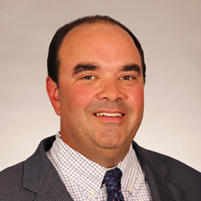How West Virginia Created the Most Expansive Education Savings Accounts in the Nation
“The Hope Scholarship is not just for private schools. It’s for education customization that hopefully will be an example for 49 other states.”
This quote comes to us from Garrett Ballengee, executive director of the Cardinal Institute, a West Virginia organization that believes widespread prosperity happens when individuals are given the freedom to author their own story. It is this foundational belief that led the Cardinal Institute to become a champion of school choice and the leader of the movement to enact West Virginia’s Hope Scholarship ESA program—the most expansive educational choice program in the country to date.
West Virginia historically has struggled to improve educational outcomes. In the past, advocates had little success getting real transformational education policies through the state legislature. Ballengee and the team at Cardinal, working with other allies in the Mountain State, set out to change that.
“We believed that if you started with giving people choices and introducing competition to the system, a lot of other problems in education could be solved,” he said. “Choice became our raison d’être.”
Ballengee graduated summa cum laude with a bachelor’s in finance from West Virginia University and then found his way to Washington, D.C., to serve as a policy analyst. After five years, he was ready to bring what he had learned to effect change at home as Executive Director of the Cardinal Institute.
When the institute narrowed in on educational freedom, they sought the advice of school choice policy experts who could help them craft a plan to make it happen. Enter EdChoice.
“I was invited to a dinner with the whole EdChoice team,” Ballengee said. “I sat down next to the CEO, Robert Enlow, and he proceeded to grill me for the next two hours!”
But the conversation wasn’t just about school choice. When getting to know new advocates, the EdChoice team digs in to get a holistic look at leadership, their goals, plans and their needs to get a better sense of how our research and services can best help locally.
“EdChoice doesn’t come in and tell local partners what success looks like,” Ballengee said. “They understand the value of local knowledge. They understand the value of national resources to supplement local knowledge, not to supplant it.”
With communication lines open and a relationship built on trust established, the work began, and a wild ride ensued.
West Virginia’s first ESA bill was introduced in 2017. Then came the “Red for Ed” teacher strikes in 2018 and 2019. Then came the COVID pandemic, which has accelerated the demand for educational choice. Through all of this, the Cardinal team never stopped their work to educate the public and policymakers, sharing the case for school choice wherever they could with whomever would listen.
“You never know who is going to be in an audience,” Ballengee said. “We had legislators and future legislators, future committee chairs and other influencers and leaders attend our events.”
Ballengee pointed to a few EdChoice resources that were game-changers, including original research, surveys and fiscal analysis.
“There were no objections we could not answer,” he said. “For the first time, legislators had an alternative set of facts around education issues, like fiscal notes and other key data.”
After five years of work on the ground, the payoff came in 2021. West Virginia passed a universal ESA program and instantly became a beacon for school choice advocates around the nation.
“We feel like we summitted the mountain, but then realized that we are not quite at the top yet,” Ballengee said.
Now the hard work begins. Cardinal and local partners are now in the process of program implementation. And they know the stakes are high.
There certainly are obstacles, and local advocates are keenly aware. They know they must battle a lack of general public knowledge about education as well as opponents’ attacks via the courts and other avenues. It’s hard work, but we are all up for the challenge.
“We need to make sure the program delivers the result it promises,” Ballengee said. “If we do that, West Virginia can truly become a model for the nation.”




